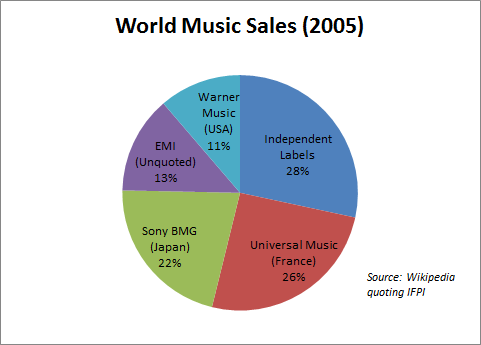The Register today comments on whether Vivendi might buy EMI. They don’t seem that interested but they point at a story that EMI had passed into the hands of Citigroup, which I had missed. They are no longer a public company and certainly not in the FTSE any more.
This is important, since according to Wikipedia’s Music Industry page, albeit in 2005, EMI sold ~13% of the world’s traded music.(The market is dominated (72%) by four companies, the other three of which are Universal, owned by Vivendi, a French company, Sony, ultimately a Japanese company and Warner Music, a US based company.)

They were the only UK company in this list. (I think we can see where I am going with this). The world’s law makers are passing laws, such as the UK’s Digital Economy Act against the interests of their voters, and in the interests of four companies. In the case of the UK lawmakers, none of these companies are now UK quoted. Just whose jobs and prosperity are they protecting?
Why are we doing this again?
Wikipedia also has a page called Global Music Market Share, which might shed some light on today’s numbers. …